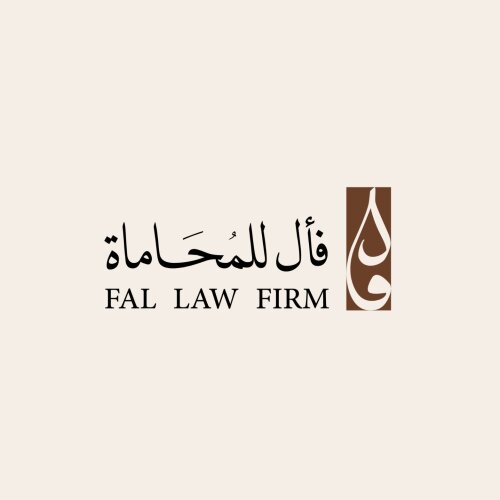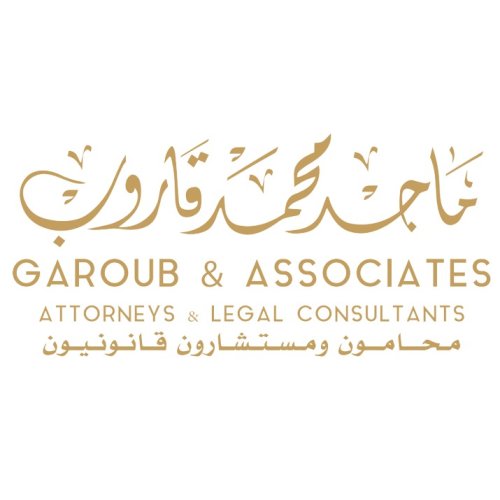Best Commercial Litigation Lawyers in Riyadh
Share your needs with us, get contacted by law firms.
Free. Takes 2 min.
List of the best lawyers in Riyadh, Saudi Arabia

About Commercial Litigation Law in Riyadh, Saudi Arabia
Commercial litigation in Riyadh refers to the process of resolving disputes that arise out of business and commercial transactions through legal proceedings. With the city being a key business hub in Saudi Arabia and the Middle East, commercial litigation plays an important role in maintaining fair practices and ensuring that agreements are honored. Such litigation may involve issues like breach of contract, partnership disputes, shareholder disputes, fraud, and business torts. The Saudi court system, as well as specialized bodies like commercial courts, handle most commercial litigation matters in Riyadh. As the Kingdom continues to diversify its economy, commercial disputes have become more frequent and complex, emphasizing the importance of legal guidance in navigating this landscape.
Why You May Need a Lawyer
Engaging a commercial litigation lawyer in Riyadh is crucial in various scenarios, including:
- Experiencing a breach of contract by a business partner or client
- Facing disputes among shareholders, directors, or business partners
- Dealing with non-payment or debt recovery issues in business transactions
- Needing to enforce or defend against commercial agreements in court
- Addressing allegations of commercial fraud or misrepresentation
- Managing complex commercial negotiation and mediation processes
- Understanding and complying with local business and commercial regulations
- Responding to claims for damages or compensation by other businesses
- Dealing with disputes arising from mergers, acquisitions, or joint ventures
- Challenging decisions or actions taken by regulatory bodies impacting your business
Lawyers can provide crucial guidance on the best legal strategies, represent you in negotiations or court, and ensure your interests are protected throughout the litigation process.
Local Laws Overview
Commercial litigation in Riyadh operates within the framework of Saudi national laws, regulations, and judicial practices. The primary legal sources include the Saudi Arabian Commercial Courts Law, the Civil Procedure Law, the Companies Law, and elements of Islamic Sharia principles. Key aspects include:
- Specialized Courts: The Commercial Courts have jurisdiction over most business disputes. They follow procedures tailored to complex commercial matters.
- Contract Enforcement: Saudi law recognizes written and, in some cases, oral contracts. Courts typically enforce contracts that do not violate public policy or Sharia principles.
- Alternative Dispute Resolution: Mediation and arbitration are encouraged to resolve disputes before resorting to full litigation. Arbitration, especially, is increasingly common in commercial conflicts.
- Company Types: The Companies Law introduces specific rules for limited liability companies, joint stock companies, partnerships, and other business forms, each with implications for litigation.
- Appeals Process: Parties may appeal decisions from commercial courts to higher courts under certain circumstances.
- Debt Recovery: There are dedicated legal procedures for debt recovery, including the use of enforcement courts.
- Foreign Entities: Special rules may apply to international companies or cross-border commercial disputes.
Understanding the mixture of statutory regulations and Sharia principles can be challenging without professional legal advice, making local expertise essential for successful outcomes.
Frequently Asked Questions
What qualifies as a commercial dispute in Riyadh?
A commercial dispute generally arises from disagreements between businesses or between businesses and individuals in relation to business activities, such as contracts, debts, sales, partnerships, or service agreements.
Which courts handle commercial litigation in Riyadh?
The Commercial Courts in Riyadh handle business-related disputes. They are part of the specialized judiciary established to deal exclusively with commercial cases, operating under the Ministry of Justice.
Is arbitration compulsory before going to court?
While not compulsory in every case, Saudi law often encourages parties to attempt mediation or arbitration before full court proceedings. In some cases, contracts may require arbitration clauses that mandate alternative dispute resolution.
Are foreign companies treated differently in commercial litigation?
Foreign companies have rights under Saudi law but may encounter additional procedural steps, such as the need to demonstrate their legal status in the Kingdom and comply with localization requirements. Specialized expertise is often needed to navigate cross-border disputes.
What is the typical duration of a commercial litigation case?
The duration varies widely depending on the complexity of the case, but straightforward disputes may take a few months, while complex cases or those involving appeals can last longer.
Can I represent myself in commercial litigation?
While legally possible, it is usually not advisable due to the complexity of commercial laws and procedures in Saudi Arabia. Professional legal representation greatly increases the chance of a favorable outcome.
What are the costs associated with commercial litigation?
Costs depend on the specific case and may include court fees, lawyer’s fees, and other related expenses. It is important to discuss potential fees with your lawyer before initiating legal action.
What remedies can a court award in commercial litigation?
Courts may order payment of damages, enforcement of contracts, injunctions to stop certain actions, or other remedies aimed at resolving the dispute and compensating losses.
Are judgments from Riyadh’s commercial courts enforceable elsewhere?
Judgments issued by Riyadh’s commercial courts are enforceable across Saudi Arabia. International enforcement depends on treaties or reciprocal agreements with other countries.
Is it possible to settle a case out of court?
Yes, parties are encouraged to settle commercial disputes through negotiation, mediation, or arbitration whenever possible, which can save time and costs.
Additional Resources
If you are facing commercial litigation or require more information, the following resources and organizations may be helpful:
- Ministry of Justice - Oversees commercial courts and legal procedures in Saudi Arabia
- Saudi Bar Association - Offers directories of licensed lawyers and legal information
- General Authority for Small and Medium Enterprises (Monsha'at) - Provides support for business owners in resolving commercial disputes
- Chamber of Commerce in Riyadh - Offers business advocacy and guidance
- Saudi Center for Commercial Arbitration - Provides arbitration and mediation services for commercial disputes
Next Steps
If you are facing a commercial dispute in Riyadh, consider the following steps:
- Gather all relevant documentation, including contracts, correspondence, and financial records.
- Consult a specialized commercial litigation lawyer to assess your situation and discuss possible legal strategies.
- Explore alternative dispute resolution options such as mediation or arbitration if suitable.
- Prepare for litigation if necessary, ensuring full compliance with local court procedures and regulations.
- Stay informed about your case’s progress and actively participate in decisions regarding settlement, negotiation, or appeals.
Timely legal advice is critical for protecting your business and achieving the best possible results in commercial litigation. Do not hesitate to reach out to a qualified professional if you need assistance.
Lawzana helps you find the best lawyers and law firms in Riyadh through a curated and pre-screened list of qualified legal professionals. Our platform offers rankings and detailed profiles of attorneys and law firms, allowing you to compare based on practice areas, including Commercial Litigation, experience, and client feedback.
Each profile includes a description of the firm's areas of practice, client reviews, team members and partners, year of establishment, spoken languages, office locations, contact information, social media presence, and any published articles or resources. Most firms on our platform speak English and are experienced in both local and international legal matters.
Get a quote from top-rated law firms in Riyadh, Saudi Arabia — quickly, securely, and without unnecessary hassle.
Disclaimer:
The information provided on this page is for general informational purposes only and does not constitute legal advice. While we strive to ensure the accuracy and relevance of the content, legal information may change over time, and interpretations of the law can vary. You should always consult with a qualified legal professional for advice specific to your situation.
We disclaim all liability for actions taken or not taken based on the content of this page. If you believe any information is incorrect or outdated, please contact us, and we will review and update it where appropriate.
















